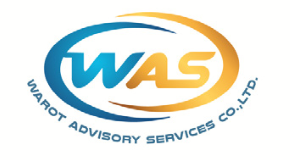South Korea was the biggest foreign investor into Thailand in the first quarter of 2021, accounting for more than THB10 billion (USD314 million) or 17% of total foreign investment in the country, according to Thai government data. While this ranking might prove temporary, it illustrates that South Korean companies see Thailand as an attractive destination to set up businesses.
Moreover, Thailand’s increasingly tech savvy population may see the country become a major market for South Korean companies in the e-commerce, gaming, software and other digital industries.
For its part, the Thai government has played an important role in accommodating foreign investment by initiating reforms aimed at making the country an easier place to do business. Thailand now ranks 21st in the World Bank’s Global Ease of Doing Business Index.
This article provides an overview of laws and regulations to help foreign investors make an initial plan for doing business in Thailand.

Partner
Tel: +66 81 802 5698
Email: warot@warotadvisoryservices.com
Type of entity
There are two types of Thai limited companies: a private limited company and a public limited company. A public limited company is not commonly used by a foreign investor unless there is a goal to list the Thai shares or offer bonds on a public exchange. Thai law requires the use of a public limited company for certain industries, e.g., banking and insurance. The requirements to incorporate and maintain a public limited company are generally more onerous when compared to a private limited company.
In general, there is no capital requirement to establish a Thai limited company. A Thai limited company’s shareholders will register the capital of the entity, but only a minimum of 25% of the registered capital needs to be paid into the entity.
If, however, an incentive is sought from Thai government authorities, such as the Board of Investment, the board may impose a minimum capital requirement, such as THB1 million for a related-party service business. Or, it will require that the minimum capital be reasonable and acceptable for the business to cover its cost of investment, including the cost of construction, machinery, installation, property and working capital.
The Foreign Business Act provides that a foreign corporation applying for a foreign business licence must meet minimum capital requirements that are contained in regulations issued by the Ministry of Commerce’s Department of Business Development.
Foreign Business Act
The act is the cornerstone of regulations when foreign investors consider entering into the Thai market as it imposes limitations on the types of business a foreign person can operate in the country. The act also identifies the limit of foreign participation in a business in Thailand. Business activities that fall under list 1, 2 or 3 of the act are subject to the limitations imposed by the act. Companies must obtain a foreign business licence before conducting any business activities that are stipulated in the act.
Business activities that fall under list 1 are strictly prohibited to foreigners. Business activities covered by list 2 require approval from the Thai cabinet. Business activities under list 3, including, “catch-all service activity”, are prohibited to foreigners unless permission is granted by the director-general of the Department of Business Development.
In short, the act defines a foreign corporation as a Thai incorporated limited company having at least 50% of the share capital owned by non-Thai nationals or non-Thai corporations. Conversely, a Thai corporation is a limited company incorporated under the laws of Thailand, and with more than 50% of the company’s capital owned by Thai nationals or corporations.
A foreign corporation is not permitted to engage in either wholesale or retail trading, unless a minimum of THB100 million is paid into the capital of the foreign corporation or Thai branch of a foreign entity for each type of trading activity. Otherwise, the foreign corporation will have to obtain a licence.
Board of Investment
The board is the government authority that was set up to oversee investment in Thailand under the Investment Promotion Act and to periodically issue new policies to promote investment in business activities that would benefit the Thai economy. It is also responsible for providing both Thai and foreign investors with investment tax and non-tax incentives.
The tax incentives normally provided by the board include import duty exemption and corporate income tax exemptions and/or reductions. Non-tax incentives include relaxed rules to obtain a work permit and visa for skilled foreign workers, the privilege of a foreign investor to own 100% of a Thai limited company, and for the Thai subsidiary of a foreign investor to own land, which is generally restricted to Thai people only.
The manufacturing activities that the board promotes include but are not limited to agricultural products, metallic products, machinery and transport equipment, medical devices, car or electric vehicle and automotive products, and chemicals and plastics. The service activities that the board promotes include public utilities, logistics service centres, science and technology parks, software development and digital services, innovation incubation centres, cloud services, tourism promotion services, clinical research, international business centres and electric vehicle charging stations.
The main criteria that the foreign investor must meet are:
. The minimum investment must be at least THB1 million except for some business activities as specified in the board’s guidelines;
. The project must have a modern production process;
. Only new machinery can be used unless the board approves the use of the old machinery;
. The debt-to-equity ratio must not exceed 3:1;
. The project must have added value of at least 20% of revenues, except for projects in agriculture and agricultural products, electronic products and parts, and coil centres, which must have added value of at least 10% of revenues; and
. For certain business activities, environmental protection must be put in place.
JV as an alternative
If a foreign investor cannot obtain a foreign business licence, or the promotion licence from the Board of Investment, the investor may establish a JV in which the Thai joint partners own more than 50% of the share capital, so the company will be considered a Thai corporation. A Thai corporation is able to perform any type of legally permissible business without restriction and is permitted to operate without a foreign business licence.
Careful consideration should be given to the control issues that may arise in such an arrangement, given that the Thai shareholders would have majority ownership in the capital of the entity. Therefore, the foreign investor must ensure it has a say in the company’s operation and management.
Other incentives
Foreign investors may also gain access to other incentives offered by the Thai government, such as the incentives offered under the Industrial Estate Authority of Thailand Act or the Petroleum Act. The Thai Revenue Code also offers tax incentives for specific businesses or periods.
Work permits
Under the Alien Working Act, only a foreigner with a work permit from the Labour Department is allowed to work in Thailand. A foreigner working without a work permit is subject to imprisonment and/or a fine.
Before entering the country to work or fill an employment post, the foreigner must obtain a Non-Immigrant B visa from a Thai embassy or consulate. This visa is normally granted for an initial stay of 90 days, but it may be extended up to one year and is renewable each year. This visa entitles the holder to apply for a work permit after arriving in Thailand.
The two main conditions a company should meet to apply for a work permit and visa for a foreign worker are that it must have paid-up capital of THB2 million, and must have four Thai employees under the payroll for every foreign worker. However, these general rules will be relaxed if the foreign company obtains incentives from the board and/or other government authorities.
Please note that all companies that are registered in Thailand must comply with other laws and regulations, for example, the Civil and Commercial Code, tax laws and employment laws.
Warot Wanakankowit is a partner at Warot Advisory Services. You can contact him at +66 81 802 5698 and warot@warotadvisoryservices.com

Warot Advisory Services
1055/655 State Tower 31/F, Silom Road
Silom, Bangrak, Bangkok, 10500 Thailand
Contact details:
Tel: +66 2424 0369
Email: warot@warotadvisoryservices.com






























